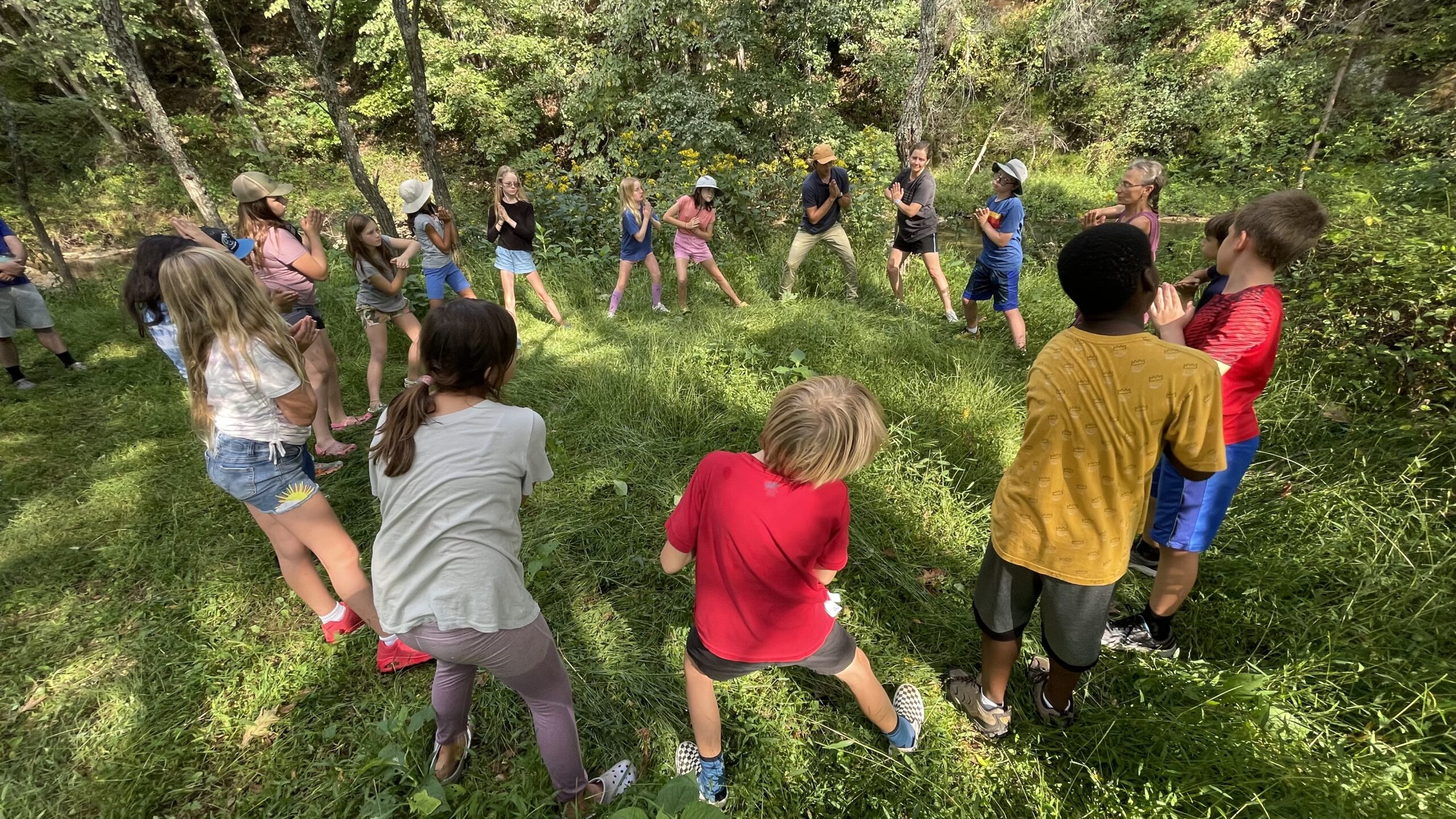
Outdoor Play Foundational for Science Education
New research highlights the foundational role that nature-based play has in Science, Technology, Engineering and Math (STEM) education. The natural world provides an incredibly rich environment for children to explore and learn about through play. They build, climb, investigate, experiment, and through that exploration acquire language and concepts that form a strong basis for more formal STEM learning. They also develop the curiosity and habit of experimentation that forms the core of scientific inquiry. That is why science education in Waldorf Schools starts with a solid foundation of nature-based play beginning in preschool, and uses a hands-on and nature-enhanced […]
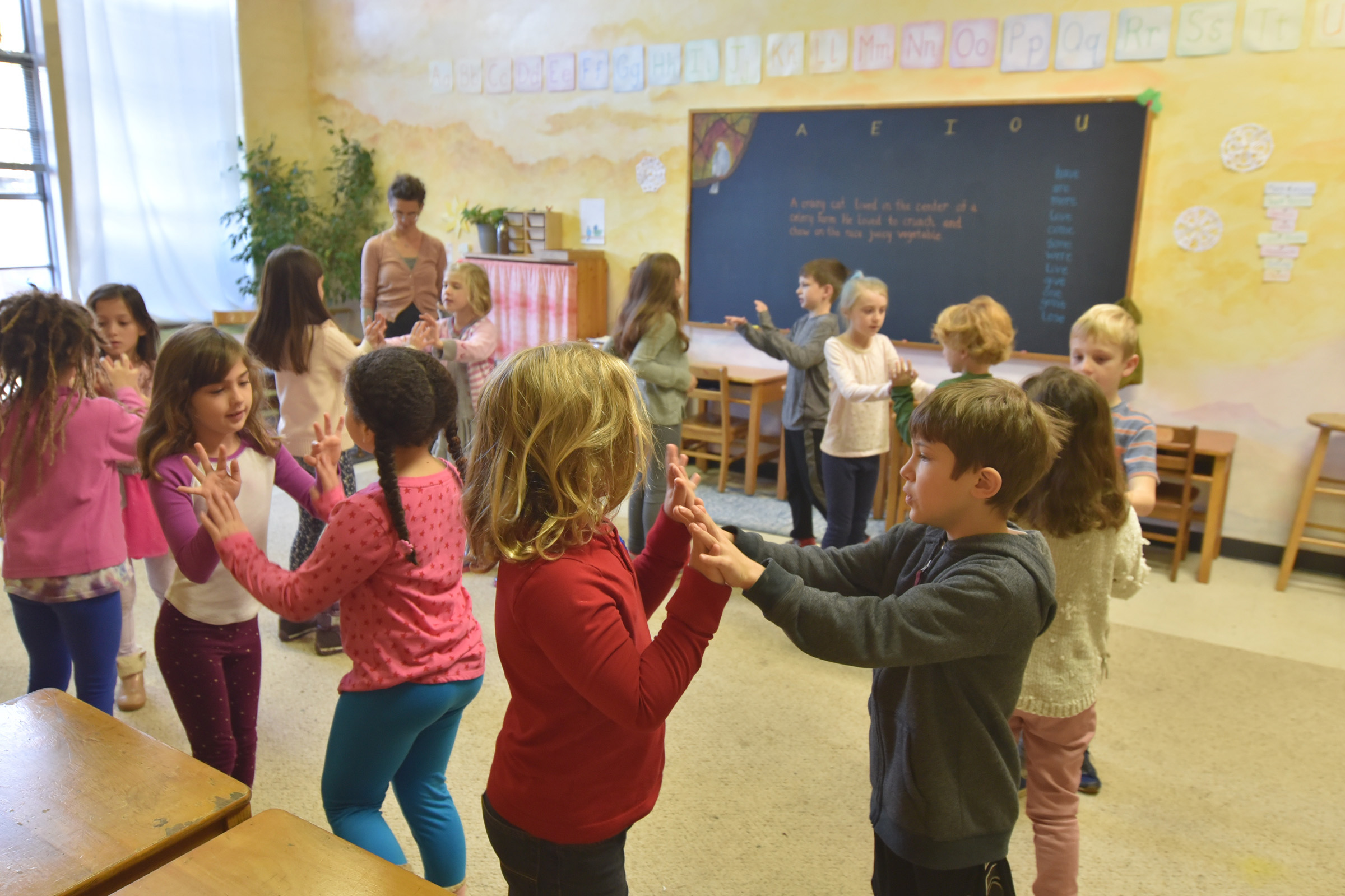
Stanford: Why Waldorf Math Works
An in-depth study by Stanford University of the Waldorf educational method in place at a public school in Sacramento, CA found that those students outperformed their peers in other public schools in their district in math, with the most gains among African American, Latino, economically disadvantaged students and other traditionally underserved students. The researchers found that in Waldorf education math is taught in multiple ways. Students move their math, sing their math, paint, draw and build their math, and it is brought into other lessons like history. This way of teaching is more approachable and enjoyable for all […]
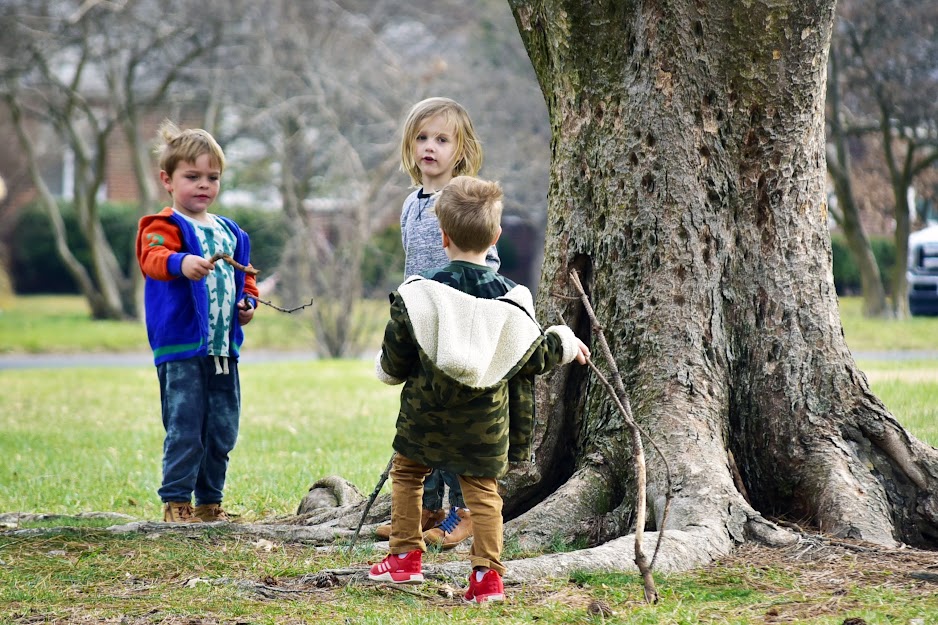
Nature Brings Out the Best in Children
How important is the environment that children play in for the quality of learning? A comprehensive study shows that children who play in unstructured outdoor environments with natural materials engage in a much wider variety of beneficial types of play, which leads to increased cognitive and developmental benefits. Researchers found that those children were more likely to be inspired to build with found materials, to engage in imaginative play, and to examine objects deeply through the senses. They also found that the children were more joyful and participated in more cooperative play. That’s why in Waldorf education we […]
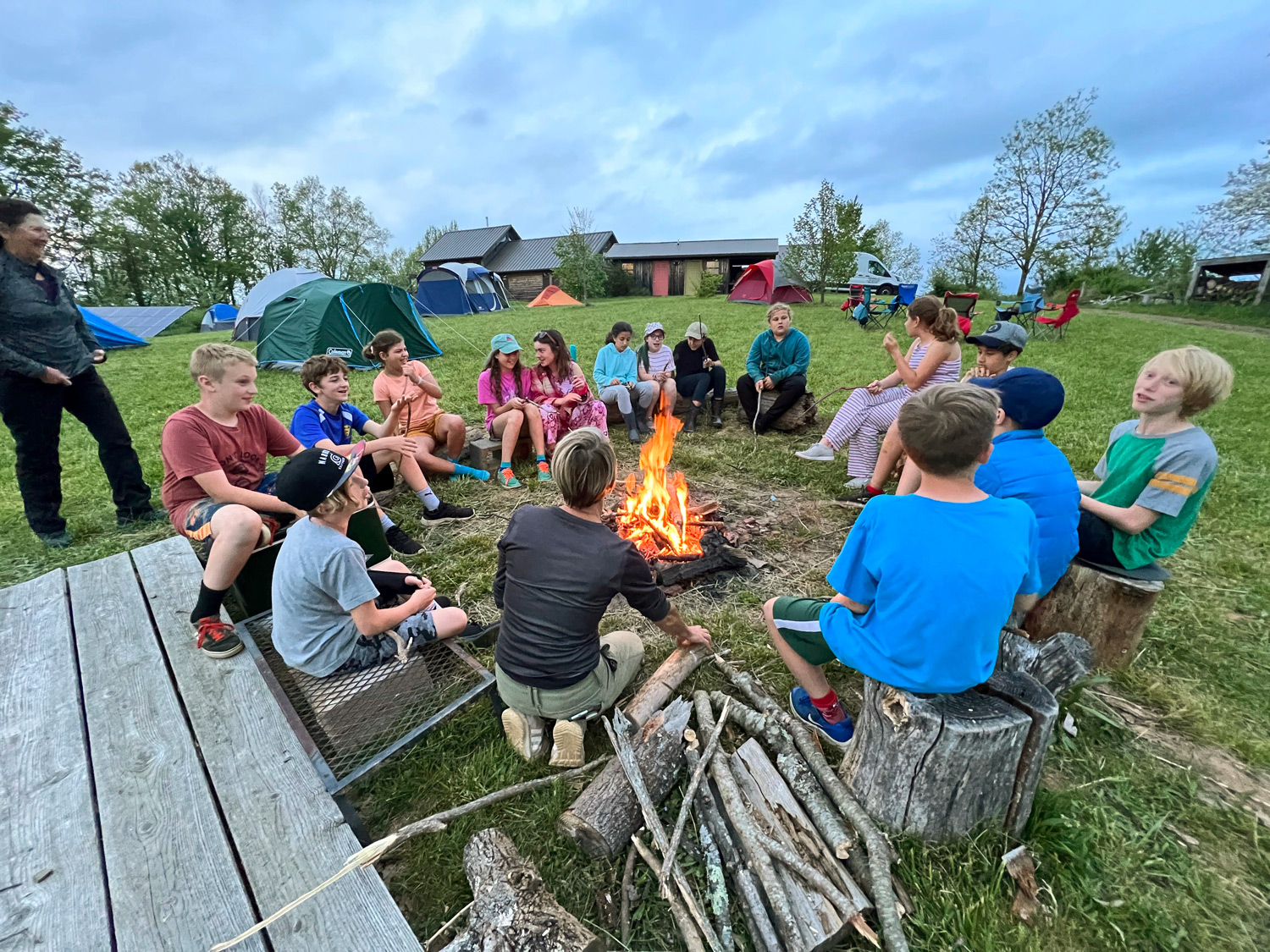
Our Philosophy: More Green Time, Less Screen Time
A new collection of 186 studies shows that high levels of time spent in nature are associated with positive mental health, cognitive functioning, and academic achievement benefits for children and adolescents, while high levels of screen time are associated with depression, anxiety, stress, and poor self-regulation. That’s why Waldorf Schools emphasize outdoor learning and play as important aspects of the school day for each student in every grade. At Richmond Waldorf School, every student gets outside every day! This is an important value of our school for all ages as we understand the important benefits for our students […]
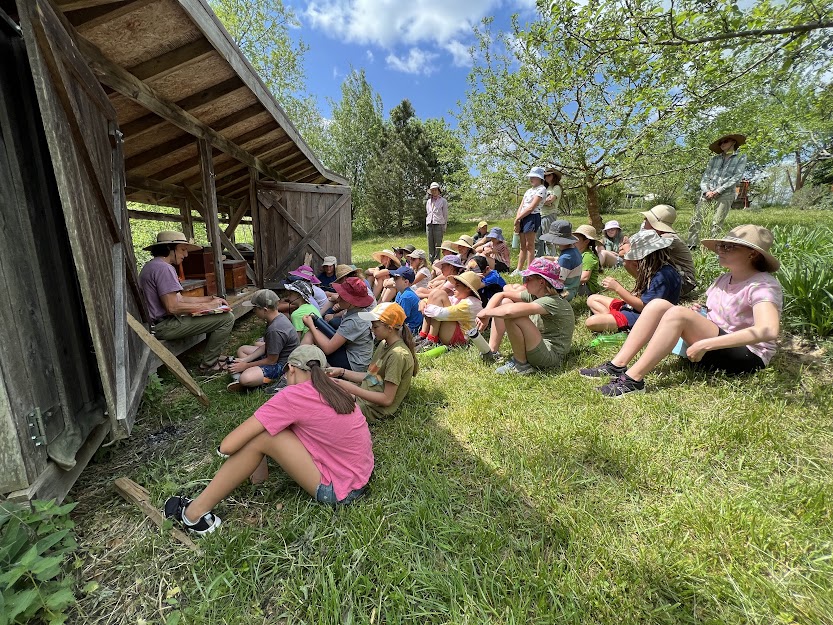
What Makes for an Outstanding School System?
Finland has developed one of the most successful school systems in the world. What makes the Finnish model so different from most North American schools, and so similar to Waldorf Schools? In both Waldorf education and Finland’s model, students experience a holistic curriculum that includes movement, play, art, world languages and music alongside math, science, reading and writing. Both education models prioritize outdoor learning and play, and minimize high stress, high stakes testing and test prep. The result is an educational model that benefits students’ mental, social-emotional and physical health, where students are joyful, focused, engaged, and academically […]

25th Anniversary Mosaic Project
Merenda proposed that we assemble four separate mosaic pieces, each composed of tiles created by our student body. She envisioned tall, vertical panels, each incorporating the underground realm, the earthly realm and the heavenly realm, and showing how they are all interconnected. This parallels Waldorf education, which emphasizes the connections between academic subjects, practical skills, and nature. Waldorf education also deeply believes in the importance of environmental stewardship and being in harmony with the earth, which dovetailed perfectly with Merenda’s vision. Her inspiration for the project was that all of our students work together to create the fabric of our […]
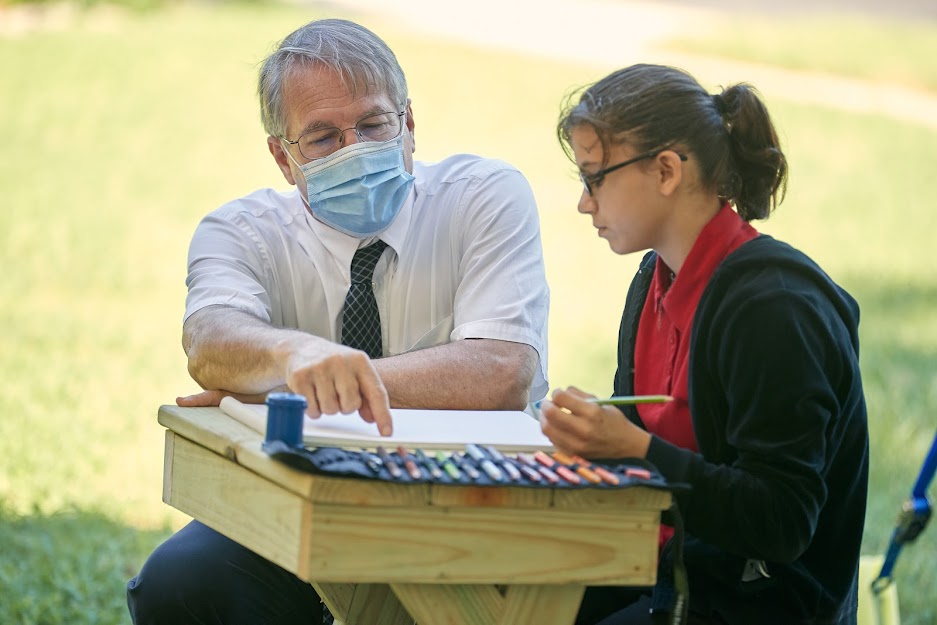
How Teacher Looping Eases Learning Disruption
New studies show that a teacher educating the same group of students in multiple subjects over multiple years (looping) has lasting benefits. Students who stay with the same teacher see both academic improvement as well as reductions in absences and behavioral issues. Teaching a child for multiple years allows teachers to better understand each student’s learning style, to work with families to help support students, and to challenge them to do their best work. That’s why in Waldorf education, teachers stay with their class for multiple years, building a safe and supportive learning environment and strong relationships. This […]
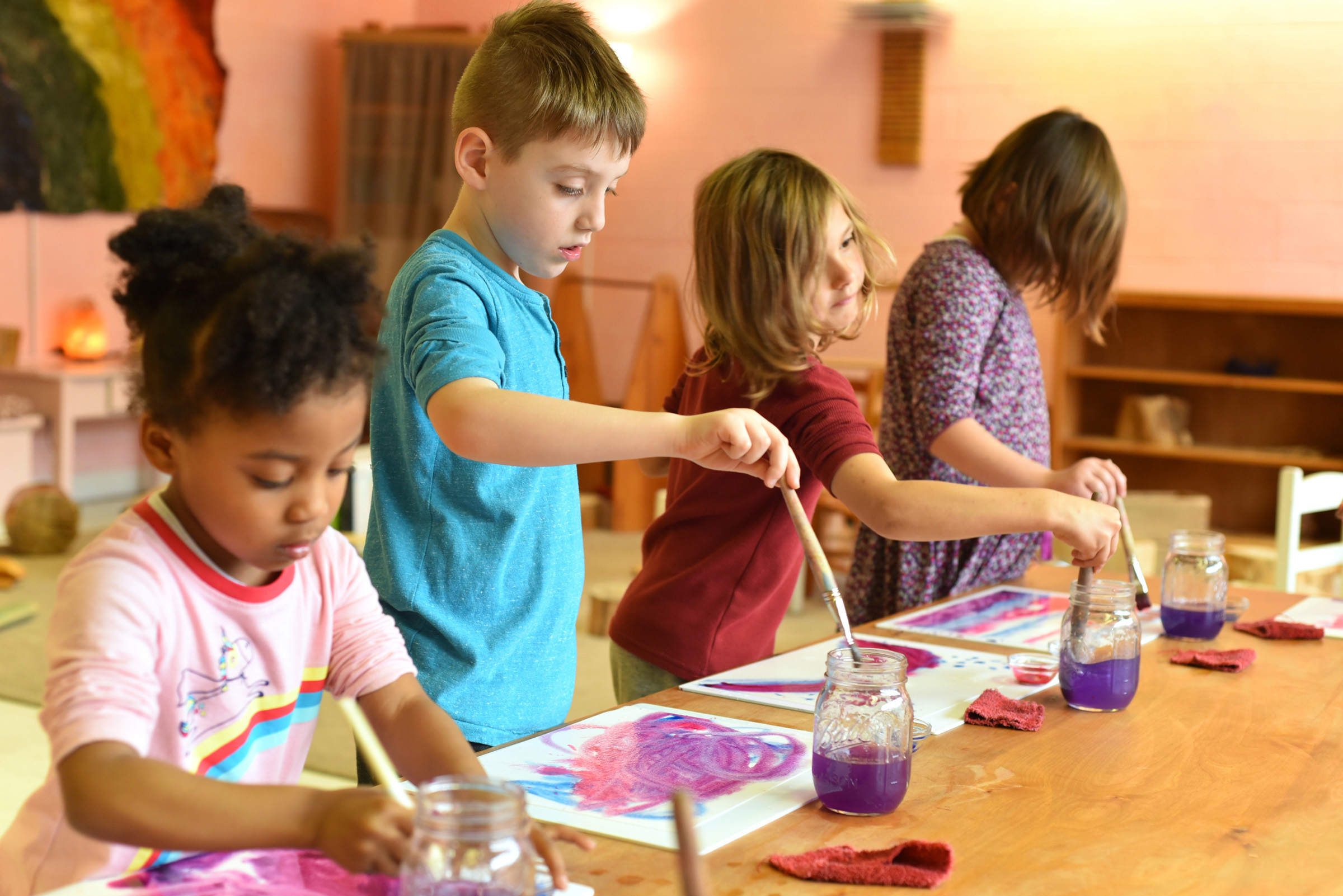
Pushing Academics into Preschool is Harmful
A brand new comprehensive study of preschool finds significant drawbacks to pushing academics too early. Researchers found that any initial academic gains were quickly erased, and children who attended academic focused Pre-K were actually behind their peers in elementary and middle school. Another troubling finding was that students who experienced early academic pressure showed dramatic increases in behavioral issues later on. In Waldorf education, we focus on what is developmentally appropriate for each age group, understanding that children especially need play, movement and art, which are all critical to social-emotional health and academic success. Asking children to take […]
